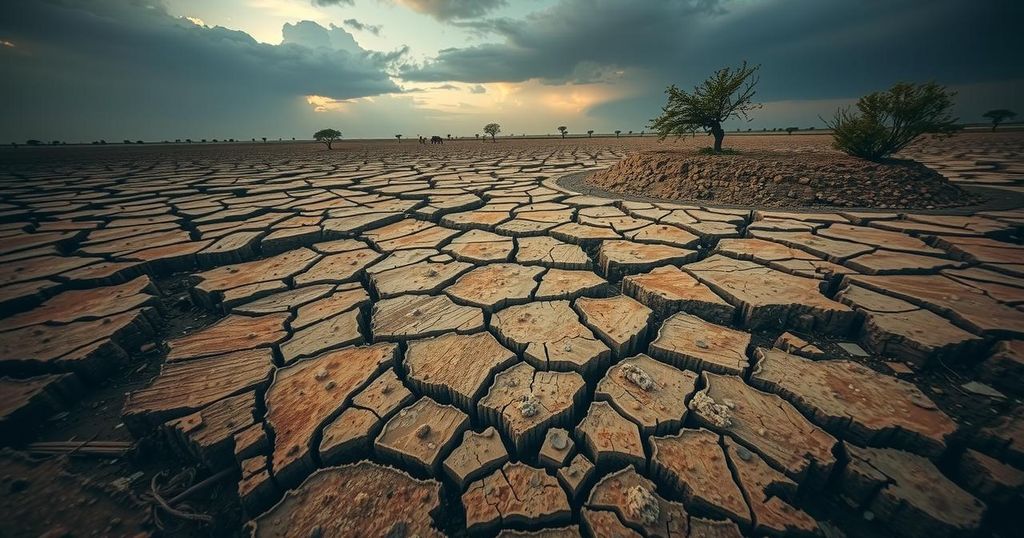Southern Africa is currently facing its worst drought in a century, affecting over 27 million people, including 21 million children who are malnourished. Several countries have declared national disasters as a result of devastating crop failures and livestock losses. The situation is expected to worsen until the next harvest season, highlighting the critical need for humanitarian assistance and long-term climate resilience strategies.
Southern Africa is currently suffering from the most severe drought in a century, which has left over 27 million individuals at risk of hunger. The region has been grappling with an acute humanitarian crisis as several countries, including Lesotho, Malawi, Namibia, Zambia, and Zimbabwe, have declared national disasters due to the devastating impact of crop failures and livestock losses. As the Food and Agriculture Organization (FAO) indicates, approximately 21 million children are experiencing malnutrition, heightening the urgency of the situation.
The drought, exacerbated by climate change and the El Niño weather phenomenon, has created disastrous agricultural conditions throughout the region. Reports indicate that Zambia has lost around 70 percent of its harvest, while Zimbabwe’s losses have reached 80 percent. With the onset of the lean season in October, the food shortages are expected to worsen until the next harvest, scheduled for March or April of the following year. Aid agencies have noted that tens of millions of people in the area depend on rain-fed agriculture for their sustenance and income.
Furthermore, the drought has had significant repercussions on water resources, notably diminishing hydropower capacity, which has resulted in widespread electricity shortages. In an extreme response to the resource scarcity, authorities in Namibia and Zimbabwe have resorted to wildlife culling, including elephants, to provide much-needed meat to combat the crisis. The stark reality of climate vulnerability in sub-Saharan Africa underscores the urgent need for enhanced support and resilience measures for the populations affected by these environmental crises.
The recent drought in Southern Africa represents a catastrophic event that has profound implications for food security and livelihoods in the region. Experts attribute this crisis to a combination of factors, including climate change effects and recurring El Niño conditions that have led to inadequate rainfall. This situation is aggravated by the high dependency of local communities on rain-fed agriculture. Balancing the immediate need for food and longer-term climate resilience is critical in addressing the challenges faced by these populations.
In conclusion, the unprecedented drought affecting Southern Africa presents a significant humanitarian crisis that requires immediate attention. With millions facing the threat of starvation, especially vulnerable children, the situation necessitates urgent intervention from international aid organizations and governments. It is essential to develop sustainable and resilient agricultural practices in the region to combat the impacts of climate change and improve food security in the long run.
Original Source: www.aljazeera.com






